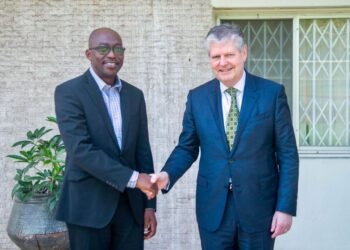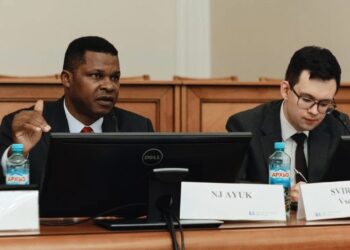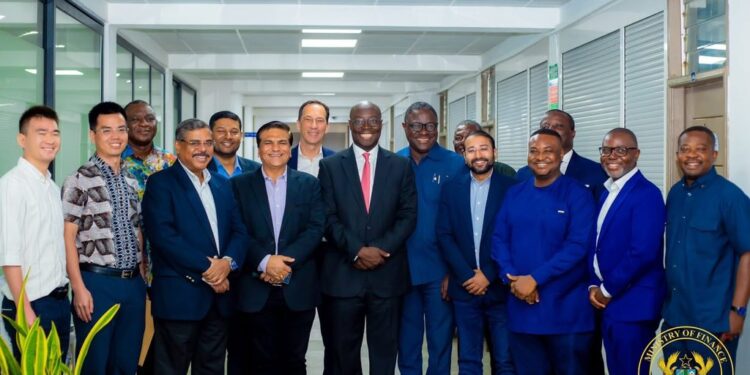In January 2025, the Government of Ghana took a significant step toward addressing the persistent challenges in the country’s power distribution sector by establishing a seven-member technical committee.
This committee was tasked with exploring avenues for private sector participation in the operations of the Electricity Company of Ghana (ECG). The initiative aims to tackle inefficiencies such as high distribution losses and poor revenue collection, which have long plagued the sector.
The Minister for Energy and Green Transition, Hon. John Abdulai Jinapor, has received the committee’s comprehensive advisory report during a ceremony at the Ministry of Energy and Green Transition.
The report, which is expected to guide future government policies and strategies, could mark a transformative shift in the management of Ghana’s power distribution sector.
Speaking at the event, Hon. Jinapor expressed his gratitude to the committee for its diligent work, which involved extensive stakeholder consultations and thorough analysis.
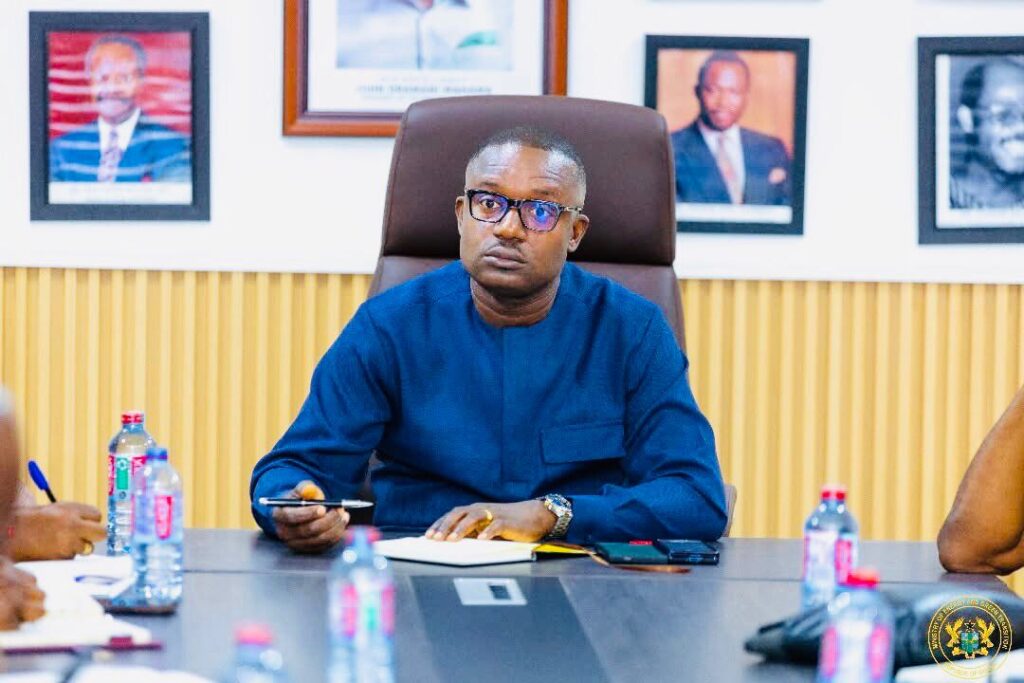
Hon Jinapor stated, “All we want is a reliable, affordable, and dependable supply of electricity,” underscoring the government’s commitment to addressing inefficiencies and enhancing energy distribution.
Amidst speculation and public concerns about a potential privatization of ECG, the Minister clarified that the government has no intention of selling the Electricity Company of Ghana (ECG) or the Northern Electricity Distribution Company Limited (NEDCo).
Instead, the focus is on fostering strategic partnerships between the government and private entities to leverage new technologies and innovative practices.
“The government is committed to finding the right balance between private sector efficiency and public sector oversight.
“We want to create a framework that ensures affordable and reliable electricity without compromising state control.”
Hon. John Abdulai Jinapor, Minister for Energy and Green Transition
This reassurance comes after previous attempts to introduce private participation, such as the 2019 Power Distribution Services (PDS) concession agreement, which was later terminated due to concerns over financial guarantees.
Key Recommendations of the Advisory Report

The advisory report examines different approaches to integrating private sector participation while ensuring that ECG remains under public ownership.
“It highlights three key options such as Entity Concession, Multiple Lease and Service Franchise with potential benefits of increased efficiency, improved customer service, and the mobilization of private investment to modernize infrastructure and technology.”
Hon. John Abdulai Jinapor, Minister for Energy and Green Transition
The Entity Concession model involves handing over the entire distribution network to a single private entity. The aim is to streamline operations and enhance efficiency.
Under the Multiple Lease approach, the distribution network would be divided into segments, each managed by a different private entity. This model seeks to foster competition and improve service delivery.
The Service Franchise option focuses on low-voltage operations, where private entities manage specific service areas. It is designed to improve customer service and operational efficiency at the grassroots level.
The report highlighted the potential benefits of these models, including increased efficiency, improved customer service, and the mobilization of private investment to modernize infrastructure and technology.
It also emphasized the importance of establishing robust regulatory frameworks to support private sector engagement while ensuring consumer protection and fair pricing mechanisms.
The report identified nine major challenges impeding the performance of Ghana’s power distribution utilities.
These challenges are categorized into governance issues, operational inefficiencies, financial constraints, and customer dissatisfaction. For instance, ECG currently incurs monthly deficits exceeding GHS 1 billion, a situation that poses a significant threat to the entire power sector.
To address these issues, the committee noted it consulted 285 individuals and 35 organizations, ensuring a comprehensive understanding of the sector’s challenges.
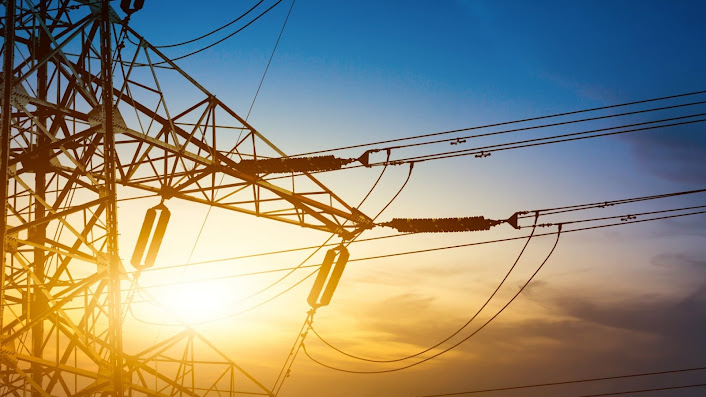
The findings stressed the need for transparent and inclusive processes that prioritize national interests while encouraging local content participation.
As discussions begin on how to implement the report’s recommendations, the government has pledged to maintain transparency and fairness throughout the process.
Hon. Jinapor emphasized the importance of local content participation in shaping a sustainable and resilient energy sector that benefits all citizens.
The next steps include Cabinet deliberations on the most suitable model for private sector participation. This will be followed by the establishment of a project implementation committee and the recruitment of a transaction advisor to oversee the process.
The anticipation surrounding this development underscores the critical role of private sector involvement in achieving a resilient and sustainable energy supply.
By addressing inefficiencies and modernizing infrastructure, Ghana aims to meet the growing demand for electricity and align with its national development goals.
This initiative represents a pivotal moment in Ghana’s energy sector, with the potential to transform power distribution and ensure a brighter, more sustainable future for all.
READ ALSO: Europe Urged To Pursue Economic Independence As More Trump Tariffs Loom


